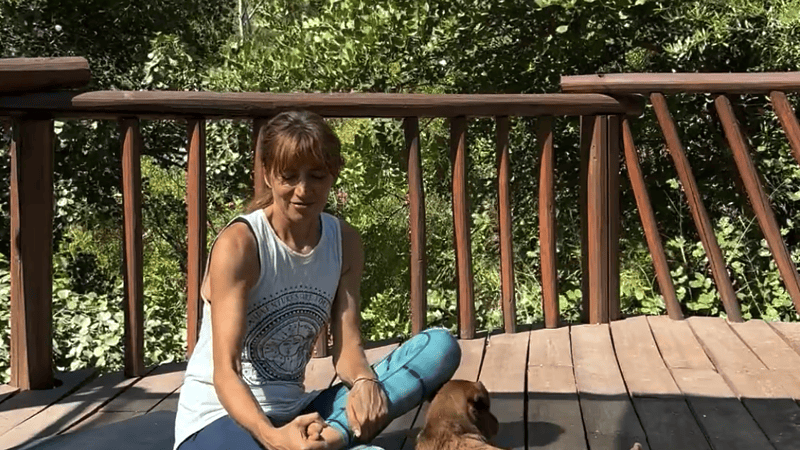
Avoiding an apocalypse in relationships
Unveiling the Path to Healthy Communication and Relationship Resilience - By Tracy King
Reading time: 5 minutes
In relationships, communication is key, and the way we communicate with our partners can have a significant impact on the health and longevity of the relationship. Unfortunately, there are some communication styles that can spell disaster for even the strongest relationships. These have been termed the Four Horsemen of the Apocalypse by Dr. John Gottman, a world-renowned relationships expert.
The Four Horsemen are criticism, defensiveness, contempt, and stonewalling. Each of these communication styles can have a destructive impact on a relationship, and it's important to be able to recognise them if we want to avoid them.
Criticism involves attacking the person rather than raising issue with their behaviour. This can lead to feelings of shame and defensiveness, making it difficult to have productive conversations. The antidote to criticism is to state complaints constructively. Instead of attacking the person, focus on reflecting their behaviour and how it made you feel. Use "I" statements instead of "you" statements to describe your situation. For instance, instead of saying "You never listen to me," try saying "I feel unheard when I talk to you."
Defensiveness involves denying responsibility for one's actions and deflecting blame onto the other person. This can lead to a lack of accountability and can prevent the couple from finding solutions to their problems.The antidote to defensiveness is to take responsibility for your part in conflicts. Instead of denying responsibility for your actions or blaming your partner, be accountable for your part in disagreements. Apologise when necessary, listen to your partner's perspective, and be open to feedback. This can help to create a safe and trusting environment where both partners can work through conflicts without defensiveness.
Contempt involves displaying disrespect and contempt for one's partner through negative body language, sarcasm, or hostile humour. This can erode trust, respect, and intimacy and can lead to feelings of resentment and anger. The antidote to contempt is to cultivate a culture of appreciation. Instead of showing disrespect to your partner through sarcasm, ridicule, or name-calling, focus on expressing positive emotions. Try to find ways to show gratitude and admiration for your partner's positive qualities, actions, or accomplishments. A culture of appreciation can help to build trust, respect, and intimacy and improve communication in the relationship.
Stonewalling involves withdrawing from the conversation or shutting down emotionally. This can make it difficult to resolve issues and can lead to feelings of loneliness and frustration. The antidote to stonewalling is to practice self-soothing and take breaks when needed. Instead of withdrawing from conversations altogether, which can make your partner feel neglected and ignored, learn how to recognise when you are becoming overwhelmed and practice self-soothing techniques, such as deep breathing or visualisation. Additionally, take a break from the conversation if you need to calm down. This way, you'll be able to return to the conversation more grounded and open.
To know if we are stepping into any of these patterns and maintain healthy communication, we need to cultivate skills of mindfulness, self-awareness, and compassion. These characteristics can be developed through yoga Here are some of the ways in which yoga can help prevent us from joining the Four Horsemen in their furlong of fury:
1. Mindfulness: Mindfulness is the ability to be present in the moment, observe our thoughts and feelings without judgment, and avoid becoming overly caught up in our emotions. Yoga encourages us to be present in the moment, to focus on our breath and our body, and to cultivate awareness of our thoughts, feelings, and sensations. Mindfulness can help us to identify when we are falling into one of the Four Horsemen communication styles and can help us to pause, breathe, and respond in a more productive way.
2. Self-Awareness: Through the practice of yoga, we can become more aware of our own triggers, patterns of behaviour, and communication styles. This can help us to recognise when we are engaging in one of the Four Horsemen and can help us to take responsibility for our own actions and emotions.
3. Compassion: Yoga teaches us to cultivate compassion for ourselves and for others. When we approach our partners with empathy and understanding, rather than with criticism or contempt, we create an environment of trust and respect that can foster healthy communication and deeper intimacy.
4. Stress Reduction: Yoga is also a powerful tool for reducing stress, anxiety, and tension, all of which can contribute to unhealthy communication patterns. When we are less stressed and more centered, we are better able to approach our partners with openness and compassion.
Yoga is a practice that requires focused attention to movement, breath, and sensations in the body. Practicing yoga postures, or asanas, requires concentration and attention to the breath, which helps to calm the mind and bring us into the present moment. By focusing on the present moment, we begin to build our capacity for mindfulness.
We learn to develop a greater sense of awareness of our breathing and our body. By learning to control our breath, we become more aware of our internal state, which can help us regulate our emotions and manage our stress responses.
Yoga also involves meditation, which helps further develop mindfulness. By observing our thoughts, we learn to be more aware of our automatic patterns of thinking and behavior. We also learn to let go of our attachment to our thoughts and emotions, which can help us reduce anxiety and stress.
Many yoga practices encourage self-reflection, such as journaling, journal prompts, and group discussion. Self-reflection can help us become more aware of our thoughts, beliefs, and emotions, and can lead to a greater sense of self-awareness.
With greater awareness we have greater compassion. Yoga encourages us to become more mindful of our thoughts, actions, and body sensations, leading to a deeper understanding of ourselves and our relationship to the world. By practicing awareness and non-judgmental observation, yoga allows us to develop greater empathy towards ourselves and others.
We learn to treat ourselves kindly and compassionately. As we struggle with difficult poses, we learn to be patient and gentle with ourselves, to avoid self-criticism and judgment. This creates self-compassion that can lead to more compassion for others.
We also cultivate gratitude for our bodies and our abilities, we develop a more positive attitude towards ourselves and others, which can also lead to greater compassion.
The communication styles of The Four Horsemen of the Apocalypse can be devastating to relationships. By cultivating mindfulness, self-awareness, compassion, and encouraging stress reduction, through the practice of yoga, we can prevent ourselves from falling into these destructive patterns and create deeper and more fulfilling relationships based on trust, respect, and intimacy. Practicing yoga together as a couple provides even deeper opportunities for connection and Apocolyptic avoidance, as it keeps the horsemen running for the hills.







